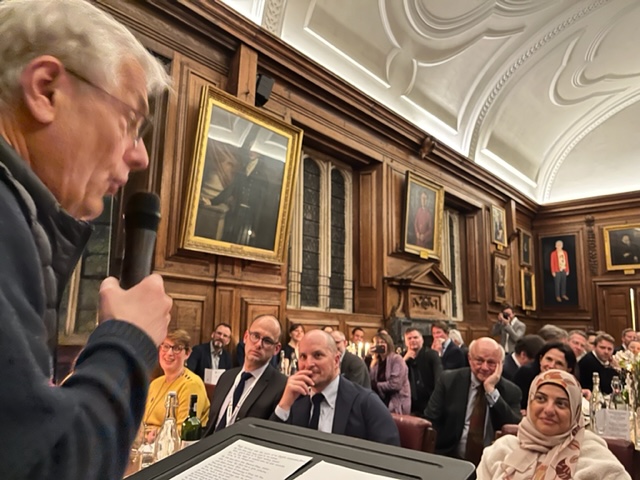Exit Interview: Outgoing CEO Tries to Explain His Stance on Stances
February 10, 2023
If CEOs can get away with not weighing in publicly on social issues in a divisive society, they will. (Won’t you?)
Last week Axios published a simplistic piece—(surprise!)—titled, “America’s CEOs Have Gone Silent on National Tragedies.” Leaning hard on a comparison between CEOs’ vocal reaction to George Floyd and the relative corporate silence around Tyre Nichols, the article overstates the issue but its money line isn’t far off: “The pendulum is resetting when it comes to how and when a company, brand, or leader responds to outside events or national crises.”
Look: If CEOs can get away with not weighing in publicly on social issues in a divisive society, they will. (Won’t you?) For a corporate leader, it’s hard enough making quarterly earnings while managing an institution peopled by thousands of mixed nuts in a roiling world—without having to make running corporate commentary on the constant string of unspeakable tragedies that keeps Wolf Blitzer locked in The Situation Room.
A good look into the true mind of a CEO came last week from this Time interview with the outgoing CEO of Visa, Al Kelly. He tried to take a stance on having stances. It became pretty clear his castle was built on sand.
After asking Kelly why Visa allows itself to be used to pay for Pornhub and other electronic dens of iniquity, Time writer Belinda Luscombe said, “You appear to be quite a devoted Catholic. Is this not a problem for you personally, that you might inadvertently be funding this kind of practice?”
Kelly answered, “I run a company. So I leave my personal feelings to myself. We’re not moral arbiters. We’re not lawmakers, we follow the law of the countries in which we do business.“
Now that’s a stance!
Time’s Luscombe replied, “But you are sort of moral arbiters—you withdrew from Russia. That was a moral decision.”
“It was also driven by the fact that it was getting extremely difficult to operate there,” Kelly countered.
“Is it so bad to be a moral arbiter?” Luscombe asked. “You wrote a blog post in 2020, after the murder of George Floyd about how we as a country can’t allow this kind of thing to continue and you made some commitments about what you would do at Visa to do your part; doesn’t it feel like that’s a little bit of moral arbiting [sic]?”
Answered Kelly: “My view is that I speak out when it directly impacts the company. When it doesn’t, it’s not my position to speak out.”
“How did the death of George Floyd directly impact the company?” Luscombe asked.
“The death of George Floyd was yet another unfortunate clear sign of Black people being treated poorly. We’re a company that believes deeply in diversity; we have a great deal of diversity in our company. And I felt strongly in that particular case it warranted me speaking out.”
So he leaves his personal feelings to himself—unless he feels strongly in a particular case. Or unless the public roar is so loud and so close that something simply must be said. That’s not a stance, it’s a fallback position—the fallback position of just about every CEO who ever lived, including the ones who live today.
The Axios writer cites the Edelman Trust Barometer on how business is the only trusted institution in the world right now, and writes: “Corporate silence could crater civil discourse.”
But we’re not anywhere near “silence.” I report three times a week on CEOs’ latest utterances in my Executive Communication Report newsletter (to which you should subscribe because it’s useful and free).
As I wrote in a year-end wrap-up on What CEOs Said, and How They Sounded in 2022: “For better, and/or for worse, the current generation of corporate CEOs issues more commentary on a broader array of public issues in a year than their predecessors mumbled in a century.”
And after a few years, these CEOs are starting to see where that got them—and what little effect their commentary had. How the more frequently they spoke up and the variety of subjects they weighed in, the less the power of their pulpit.
I believe there are moments when CEOs should react to public events—for their own strategic good, and for the greater social good.
But if CEOs are talking less and demurring more, determined to speak more judiciously on issues and events they and their organizations have direct power to impact, that might benefit more than civil discourse. It might benefit civic life, too.




